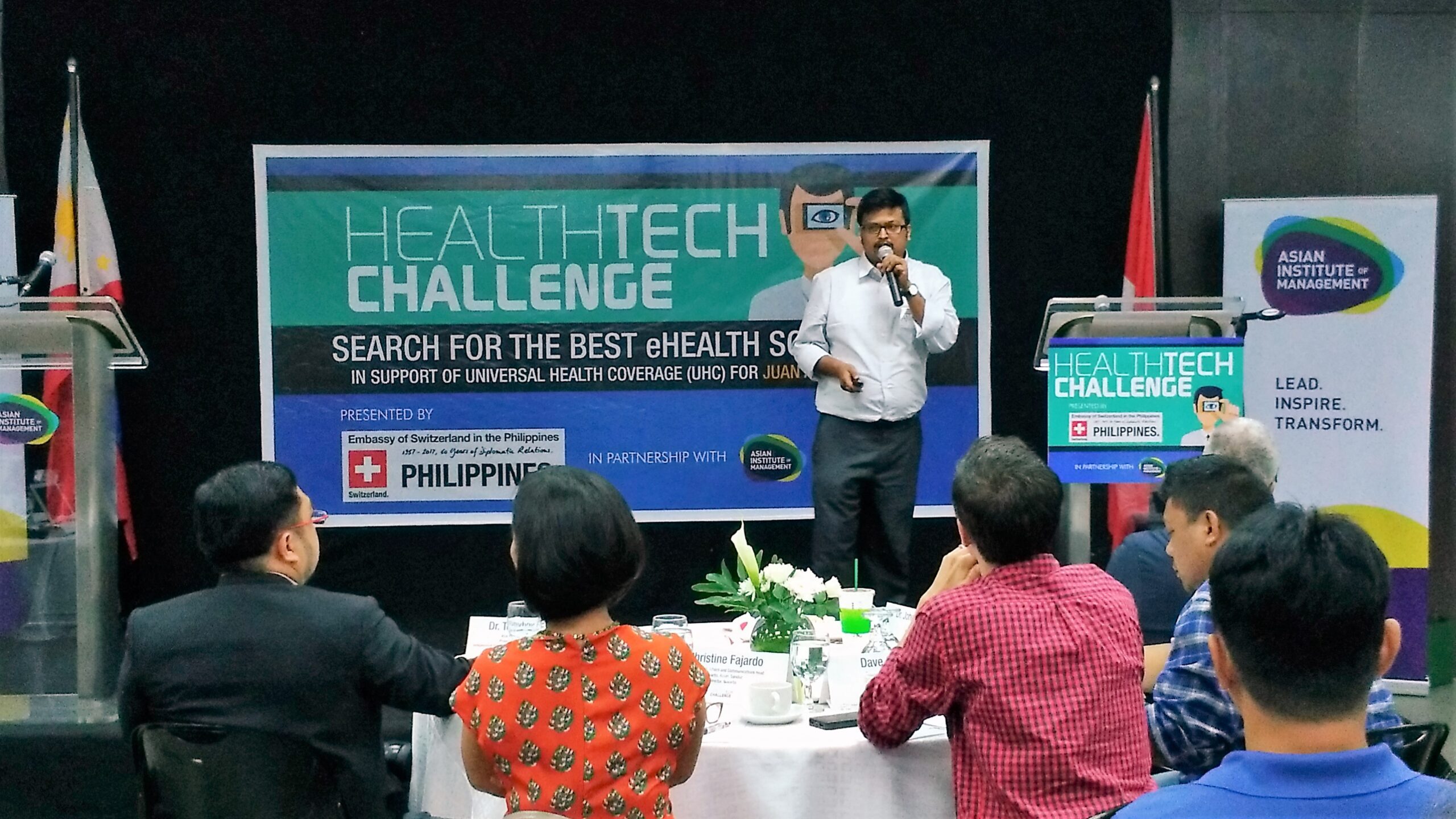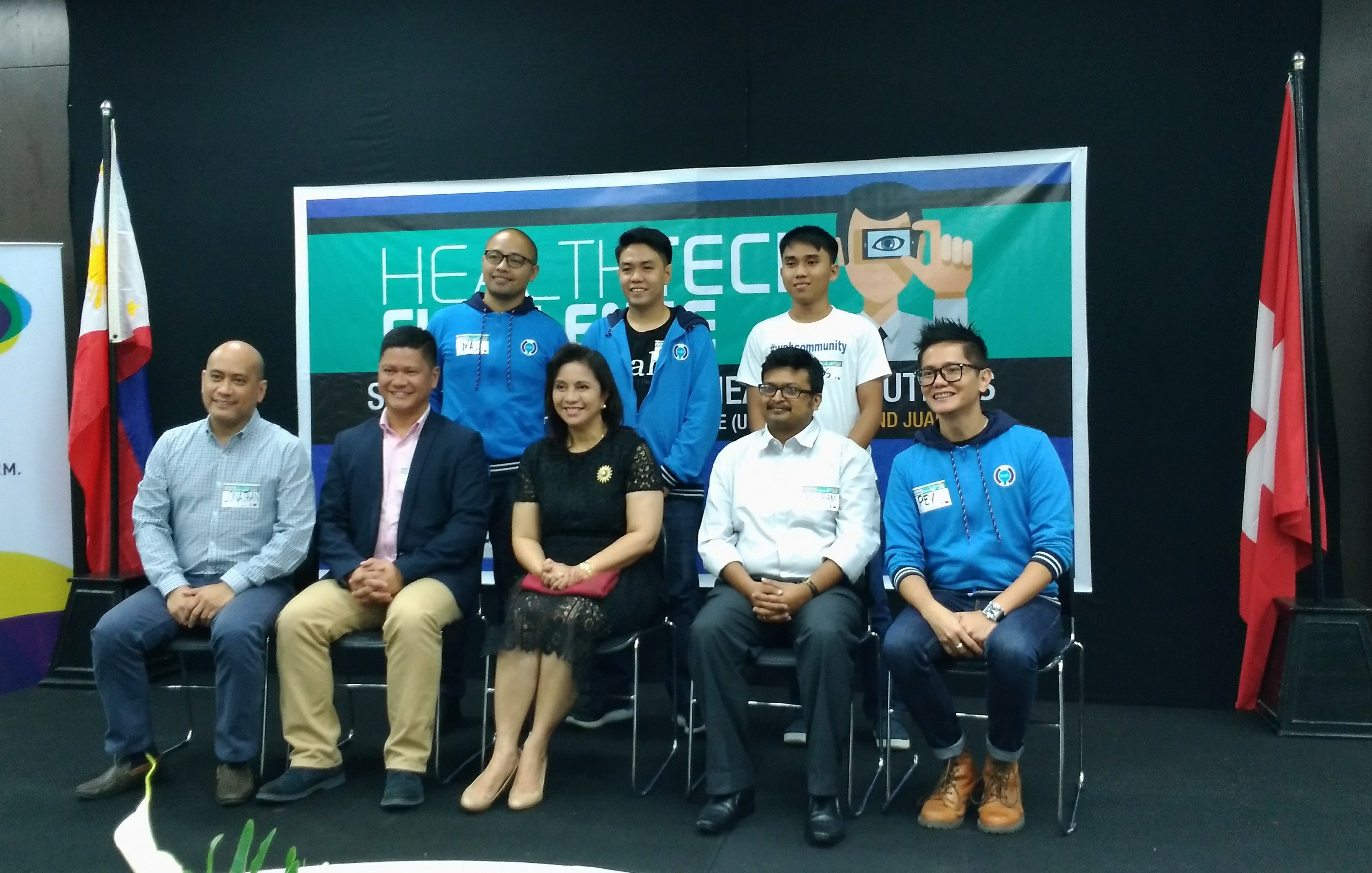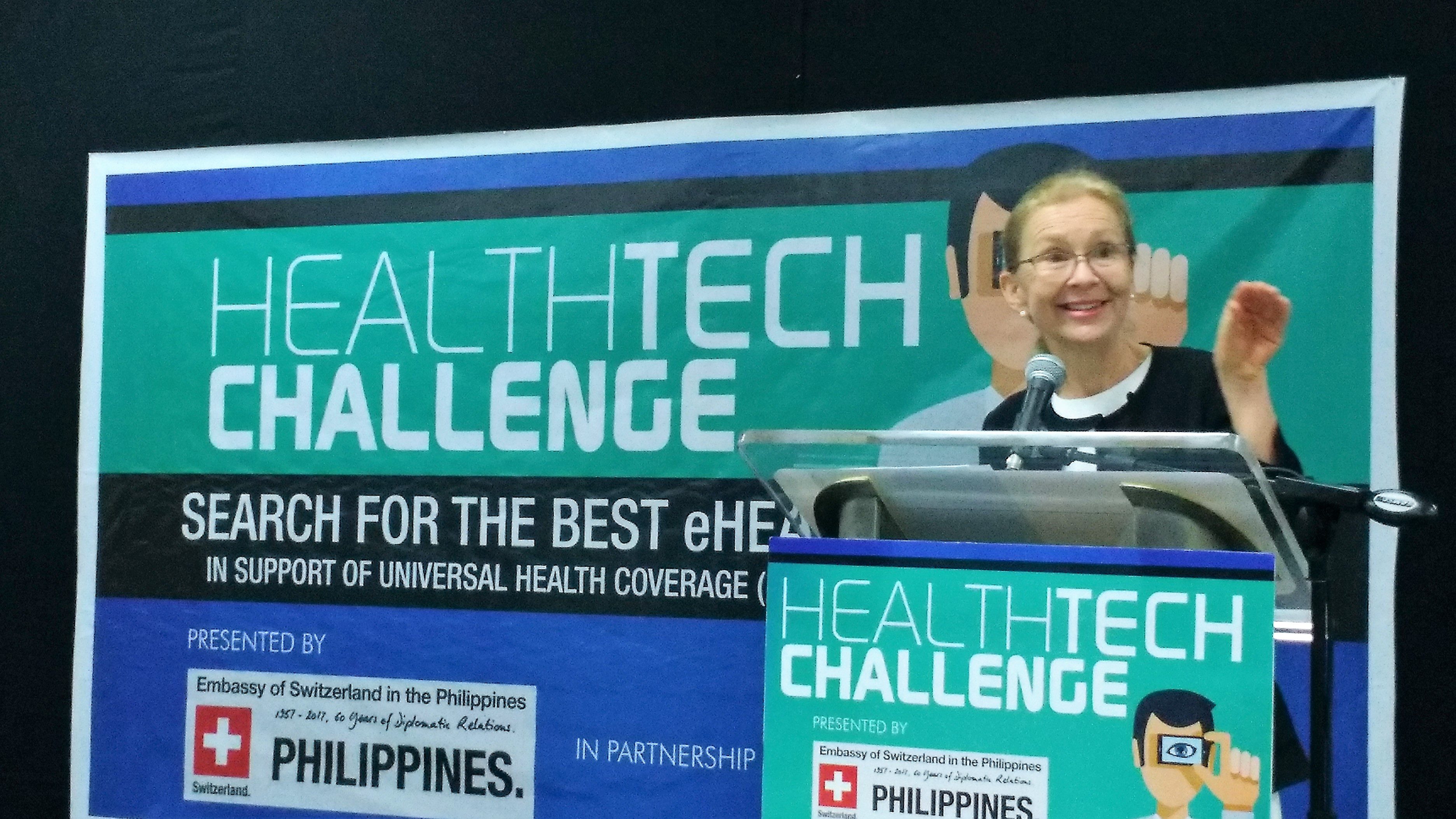SUMMARY
This is AI generated summarization, which may have errors. For context, always refer to the full article.

MANILA, Philippines – Sometimes it takes embracing uncertainties to taste the sweet fruits of success. That’s what one entrepreneur in healthcare did.
Anupam Chatterjee and his The Decision Labs startup won the 2017 HealthTech Challenge sponsored by the Embassy of Switzerland in the Philippines in cooperation with the Asian Institute of Management (AIM) in Makati City, and TechTalks.ph
His risk-taking yielded him the US$1,000 (P50,000) first prize on Wednesday, October 4, not to mention instant recognition, as he bested seven other startup finalists, which are all developed by Filipino entrepreneurs.
Chatterjee is from India but lives in Kuala Lumpur, Malaysia.
“I flew down from Kuala Lumpur just for this event to present (The Decision Labs and its flagship product CEMPIA) for 10 minutes. I think it’s been worth it,” he said in an interview.
Did he have any expectations before he came? No, he only did his best and put the rest to God, he said. “I didn’t expect to win or know if I win or not. I always thought that I should give my best.”
Showing humility, the founder and CEO of The Decision Labs said he even learned from his fellow entrepreneurs. “I think the Philippines is a very dynamic startup community, and it’s going very fast. So, that’s why I am really happy that I made this trip and I look forward for such many trips.”
What is CEMPIA?
He described CEMPIA as an intelligent patient experience management platform – a multi-lingual, multi-channel, fully digitized and automated system that helps patients to voice their satisfaction or dissatisfaction, or any complaint or difficulty throughout their treatment.
The tech-savvy entrepreneur explained how CEMPIA works.
“When a patients walks in into a hospital, there are different touch points. So, from the time of registration, to doctor consultation…laboratory, diagnosis, all these are touch points where there is somebody looking after the patient.”
Chatterjee said if the patient is unhappy with the experience, “we ensure that the patient has a voice, it’s empowering the patient. We ensure that the hospital has a very efficient and effective system that is working.”
The patient’s experience is then made known to hospital management through different channels, like kiosks, tablets, emails, audio, or video after which “an escalation” will happen to senior level.
He indicated that he developed the online health care solution knowing that aside from North America, United Kingdom, Australia, and New Zealand, platforms for patient experience are virtually non-existent though there is a huge market opportunity worth US$16 billion by 2020.
Chatterjee cited published figures that 23% of patients going to hospitals encounter some experience issues (New York Times); 1 in 3 hospitals do not act when a patient airs a complaint (The Telegraph); and 37% of patients in the Philippines have some dissatisfaction (Department of Health).
“Patient experience is a universal issue,” he emphasized.
He said he hopes to make an impact in the Philippines as he plans to partner with local hospitals for his healthcare solution.
“I really want this to be a digital transformation for the betterment of Filipinos, in general, and to improve hospitals…for the benefit of society at large and the hospitals and patients, in particular.”
Second place and $500 (P25,000) went to BloodHero; WAH (Wireless Access for Health) Initiative placed third with $200 (P10,000).
BloodHero is an online community for blood donors while WAH Initiative, which has over 100 local government units (LGUs) as partners helps LGUs manage and improve their healthcare services.
Robredo, the Swiss Embassy, and Philippine entrepreneurs
Vice President Leni Robredo graced the event at AIM in Makati City. She lauded the participating entrepreneurs for their role in nation building.

“I believe that the future of our nation lies in the hands of innovative entrepreneurs like you. When businesses and startups like yours put the Filipino at the forefront of your efforts, progress can finally reach the last, the least, and the lost. Surely, there is no better time than today to do more and do better for our people.”
The Embassy of Switzerland partnered with the Asian Institute of Management (AIM), and TechTalks.ph for the competition aimed at spreading the reach of the Philippine government’s Universal Health Coverage (UHC).
Swiss Ambassador Andrea Reichlin said the competition celebrates the 60th year of diplomatic relations between Switzerland and the Philippines.

She said she will host another event, a breakfast meeting, “to discuss e-commerce as a disruptive force and how startups can use e-commerce in their business model.”
“We will hear from an experienced company built in the Philippines with over 100 staff, programmers, what they did and their difficulties every time they get to the next stage.”
Does the embassy have funds to for Philippine startups grow?
“At the moment (we have) no program yet, no funds. But if there is a concept, we can look into it, and then we could possibly, not only us, but partnerships with others too,” said Reichlin, who speaks German (her tongue), French, English, Spanish, Italian, basic Dutch, and Arabic, having been assigned in some countries in the Middle East.
The HealthTech Challenge was meant to search for the best health technology-related solutions in the country covering any stage of the healthcare process – from awareness, diagnosis, treatment, tracking and monitoring.
Organizers said the “one-day event aims to acknowledge local solutions that could improve access to universal health coverage (UHC) for Filipinos. It may be a long road to UHC but the HealthTech Challenge is an opportunity to showcase existing solutions that we can use to improve healthcare today.”
Targeted solutions may include tech-based products like websites, mobile apps, or hardware and software.
A total of 31 startups answered the call, but only 8 entries went on to the finals: as BloodHero; GetzClinical; Medix.ph; Novostorm; The Decision Labs;
The Open CPD (Continuing Patient Development) Network; WAH Initiative; and JazzyPay.
The eight finalists battled it out before a panel of judges composed of Dr. Kenneth Hartigan-Go, school head, Zuellig Graduate of School of Development Management, AIM, and president of the Philippines College of Physicians (PCP); Dr. John Q. Wong, president, EpiMetrics, Inc.; Christine Fajardo, head of country public affairs and communications, Novartis, Alcon, Sandoz, and director, Novartis; Dave Overton, founder, CEO, Sym.ph; Dr. Tonyboy Faraon, VP, Zuellig Foundation, project director, independent practitioner, public health/health systems development; and
Christian Blanquera, founding CTO, Galleon.ph Inc., CEO & founder, Openovate.com.
Though the judges commended all the entries for their tech-driven health solutions, in the end only the three got their nods.
Overton cited the winner (The Decision Labs) for having an already-validated model. “So, they are working in India, they are working in Malaysia. So, it was not just an idea, it was basically they are coming into the market of the Philippines.”
He added that in that sense, they have proven their model is already working. “As a judge we gave a lot of weight to what they’re doing. I put them (The Decision Labs) in the same category with the others, but maybe they are just a little further along in the sense of their market or building MVP (minimum viable product).”
Overton has some advice to startup developers/entrepreneurs. “What is key in healthcare and startups in general is building a minimum viable product, getting it out to the market fast and determining, if this is the solution that people will need. And then iterating on the feedback that you get. So, I will keep it simple, and start with a clear market, find your solution, and then get it out quickly rather than spending years developing your product.” – Rappler.com
Add a comment
How does this make you feel?
There are no comments yet. Add your comment to start the conversation.